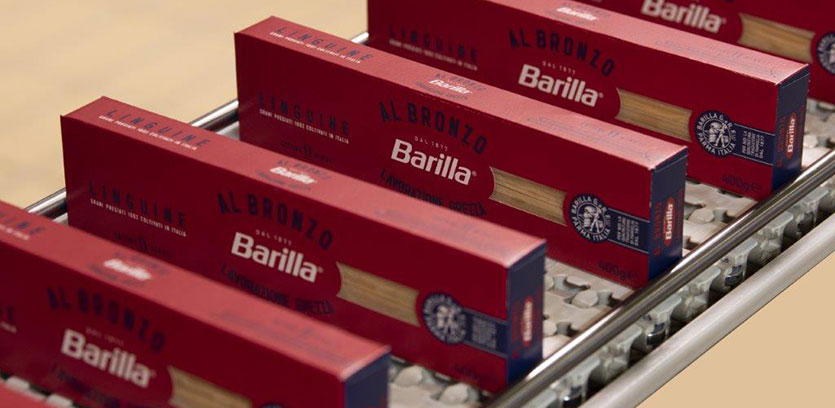Bringing Fresh Eyes to Barilla
Discover why the 145-year-old pasta company continues to turn to students in Northwestern's MMM program for guidance in design thinking and human-centered design.
Barilla pasta and sauces can be found in grocery stores all over the world. The company is 145 years old, and for the past six years, Barilla has turned to students in Northwestern's MMM program to help bring fresh eyes to their business.
MMM is a dual-degree offering between Northwestern Engineering and the Kellogg School of Management. The collaboration with Barilla is part of Business Innovation Lab (BIL), a course that serves as the culmination of MMM learning and gives the soon-to-be graduates a chance to apply knowledge learned in the program to a real-world situation.
"It provides an experience in cross-functional team dynamics, and it can help affirm what type of work they would like to do once they have completed school and join or rejoin the business world," said Marura Lenjo, Barilla’s sensory research manager for the Americas region. "It helps them learn how to present information in a more business relevant manner while still showcasing that it is supported by data."
Lenjo is responsible for facilitating making products that consumers enjoy. Keeping up with shifting customer demand is an ongoing challenge, particularly since the company's customers are more than just people looking to pick up pasta at the store for a family dinner. Barilla's customers also include foodservice leaders in restaurants, colleges, health care facilities, and any other place where Barilla pasta is served in large quantities.
Lenjo and her colleagues recently came to MMM looking to understand how Barilla could become more of a service versus a food producer for its foodservice customers.
"I learned the importance of thinking big from this project," said Alyssa Boutelle (MMM '22). "Some of the ideas we brainstormed seemed far-fetched, but Barilla appreciated that we were thinking out of the box, and even the unrealistic ideas still sparked good conversation and intriguing side tracks."
After some preliminary research, the students recommended reframing the challenge to investigate how Barilla could become a trusted partner to the creative and constrained restaurateur.
"Foodservice delivers great value to our business as a whole, yet we had never applied design thinking principles to address challenges that foodservice operators face," Lenjo said. "We also knew it was a great time to uncover and address any unmet needs which could help fuel the post-COVID recovery of foodservice businesses."
The MMM students gave their final recommendations to Lenjo, as well as Barilla's vice president of sales, the president of the Americas region, the vice president of research and development and quality, the marketing and people insights manager, and several managers from trade marketing and sales, including the foodservice marketing manager and corporate chef.
"I learned how many teams, stakeholders, and consumers needed to be taken into consideration anytime you're innovating and implementing new ideas," said Seanette Ting (MMM '22). "It definitely showed us the dangers of working on ideas in a vacuum."
The students not only presented their findings, but also passed along core tenets of the MMM program.
"Design thinking now greatly influences how I conduct research," Lenjo said. "I try to look for opportunities to understand the whole user experience in more natural settings. For the other colleagues, they learned how they can have a more human-centered-design mindset in their daily work.”
The students’ work clearly made an impact.
"The VP of sales said it was the best such presentation he had attended and the solutions were adaptable,” Lenjo said. “That was music to my ears."

